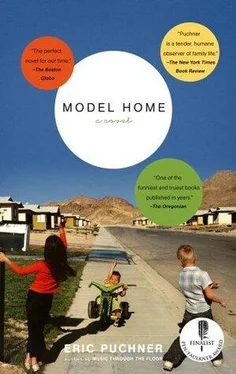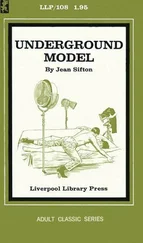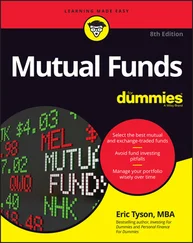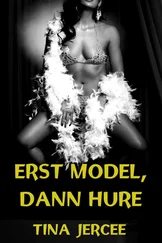By the time Hector called, after his shift, Lyle had convinced herself that he was going to back out of their plans to get lunch. She’d spent the morning imagining him in the tiny guardhouse, alone with his thoughts, the truth of her ugliness flowering in his mind. “Your parents need to put my name on the visitor list,” he said on the phone. “I can’t get through the gate.”
“What?”
“Bud’s right here. In the guardhouse.”
Lyle laughed. “But you work there!”
“It’s the rule.”
“I’ll walk up and meet you.”
She was secretly relieved. Her parents were at work, but she hadn’t figured out how to explain Hector to Dustin should he emerge from the garage unbidden. Hector met her by his truck, a little pickup that shone like a limousine. He was still dressed in his guard uniform: pinned to his breast, like a toddler’s toy, was a sheriff’s badge that said CARTER SECURITY. Lyle looked away, embarrassed. She was dismayed to see that his license plate said KAMELION. Perhaps it wasn’t his car — he was borrowing it from a sorority girl.
She climbed into the truck, which smelled like the inside of a sandwich. Hector pushed a tape into the stereo: a mad crunch of guitars, slow and furious. They drove for a while without talking.
“Why does your license plate say ‘KAMELION’?” Lyle asked finally. She had to shout over the music.
“They’re my favorite animal.”
He seemed serious. She retied one of her Doc Martens. “Where are we having lunch?”
“I’d like to change, do you mind? I forgot to bring my street clothes.” He eyed her sleepily, though not so sleepily that the carnivorous look had gone from his eyes. She felt like a pork chop: Bugs Bunny, stranded on an island and changing into the fulfillment of Elmer Fudd’s fantasy. “I was thinking maybe I’d fix something at my place.”
“Cook at your place?”
“If that’s, um, cool with you.”
He frowned, chewing one end of his mustache. It had never occurred to her that he lived somewhere. They took PV Drive North toward the freeway, coasting down the great green hill of Palos Verdes until they reached the mini-malls and gas stations along Anaheim Street, descending into a smoggy world of derricks and smokestacks and oil flares flickering like candles. Glowing through the grayness was a tremendous orange tank painted like a jack-o’-lantern. A painter was hanging from a rope, whiting out a giant pyramidal eye. Lyle had driven this way many times, to get to the freeway, but soon they passed the on-ramp and entered an area she’d never been, a neighborhood of Spanish billboards and Mexican taquerias and stores called Pepe’s Pants and Car Aroma Supply and Food 4 Less Carniceria. There was some graffiti on the side of a Laundromat that said CHRIST JESUS IS YOUR ONLY HOPE. Lyle wondered if it was a mistake but was too embarrassed to ask Hector.
Eventually they turned onto a smaller street lined with stucco houses, nestled behind fences and painted bright as Easter eggs. Even though it was the middle of summer, Christmas lights hung in squiggly vines from many of the houses. There were wet clothes draped over the fences and dogs sleeping on the sidewalk and signs on the telephone poles that said CASH FOR YOUR HOUSE or SUPER BAILAZO. Hector kept his eyes glued to the street, driving on the wrong side because everyone’s trash cans were pulled mysteriously into the road. As they turned north, he pointed at the nearby hill with its Mediterranean haze of red-tiled roofs.
“We’re neighbors, basically. You can almost see your house from here.”
“Really?”
“If it wasn’t for the smog.” He turned down the music. “Did you know Wilmington was this close?”
“No.”
Actually, she hadn’t even known it existed. At Hector’s house, they pulled into the driveway and parked next to a weight bench covered in clear plastic and surrounded by neatly stacked disks. The blinds were drawn in all the windows, like a serial killer’s. Lyle’s palms were sweating. For the first time, she wondered if his poem wasn’t intended as metaphor: perhaps he really wanted to eat her. He’d kill her first, then dine on her flesh. She thought of Mandy Rogers, her oblivious gnomish grin. Lyle’s throat felt dry. She glanced behind her at a trash-strewn alley, wondering if she could make a dash for it in her Doc Martens.
Hector cut the engine, which guttered to a stop. Surprising herself, Lyle grabbed his uniform and pulled his thistley mustache toward her mouth. They kissed like blind people, knocking teeth. He pulled back, glancing at the house.
“My mother’s here,” he said apologetically. He blushed. “I’m going to get my own apartment. Soon as she sells the house.”
Hector’s mother met them at the door, impossibly old, brown scalp visible through a scorch of hair. She was holding a bouquet of wilted sunflowers. She grinned rapturously and yelled something in Spanish: “Estoy casi muerta!” I’m almost dead. Lyle stepped backward.
“Hola, Abuela,” Hector said calmly. He turned to Lyle, tapping his head. “She’s not totally in charge.”
The old woman handed Lyle the flowers and ducked into the kitchen, where she began pulling things out of the refrigerator and sniffing them theatrically. Hector ushered Lyle inside and then went to answer the phone. The living room was small and dark. Hanging on the walls, like an exhibit, were pieces of religious memorabilia: a sculpture of the pietà, a naked saint calling for help from a sea of fire, a framed picture of John Paul II waving Miss America — style from the Popemobile. A man’s photo stood on the fireplace behind a wall of prayer candles, their glass containers Brailled with wax. The place gave Lyle a sludgy, unreal feeling, as though she were watching soap operas on a beautiful day.
Another woman appeared — Hector’s mother, she realized with relief — and Lyle introduced herself. The woman was much stouter than Hector and surprisingly beautiful, her arms clinking with bracelets. She had Hector’s same dainty-looking hands. She squinted suspiciously at the sunflowers in Lyle’s fist, which were gray and droopy, their petals crinkled into little flames.
“Thank you. You don’t need to bring flowers.”
“These aren’t… I didn’t buy them,” Lyle said.
“We have some just like.”
Hector’s mom took the dead flowers and stuck them in a glass of water on the kitchen table, arranging them as best she could. She ignored the old woman, who was unwrapping a stick of butter like a candy bar. Lyle wondered if she’d be forced to watch her eat it. At the last minute, Hector’s mom snatched the butter from the old woman’s hands and put it back in the fridge.
“She eats them like Popsicle,” his mom explained, unembarrassed.
Hector returned and said something to his mother, a brisk stream of Spanish. They seemed to be arguing. Outside of her name, Lyle couldn’t follow a word. Hector smiled awkwardly and then showed Lyle his room, a dark, cockpitty space at the back of the house. The walls were covered in posters, mostly of chameleons: satanic-looking lizards, perched on branches and eyeing Lyle like pinups. The colors made her eyes swim. Even the window had been postered over, a blood-red chameleon glowing translucently in the sun.
Hector sat on the bed next to a little cage made out of wire mesh in the corner. It was filled with leafy branches. She couldn’t see anything inside, but then he pointed at a gaudy, tie-dyed creature basking under a lightbulb, its tail curled up like a rope of Play-Doh. Its eyes were looking in different directions. Lyle laughed out loud: it was preposterous, like something God had cooked up after a head injury.
“This is Raoul,” he said, as though introducing her to a buddy.
Читать дальше












